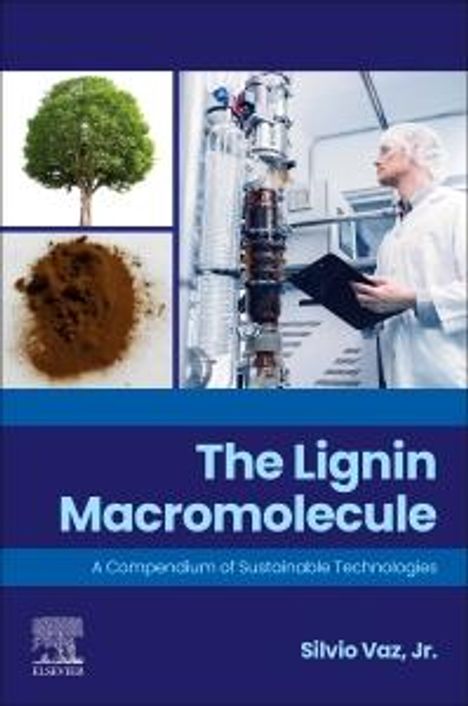Silvio Vaz Jr: The Lignin Macromolecule, Kartoniert / Broschiert
The Lignin Macromolecule
- A Compendium of Sustainable Technologies
Lassen Sie sich über unseren eCourier benachrichtigen, sobald das Produkt bestellt werden kann.
- Verlag:
- Elsevier Science, 10/2026
- Einband:
- Kartoniert / Broschiert
- Sprache:
- Englisch
- ISBN-13:
- 9780443315367
- Erscheinungstermin:
- 1.10.2026
- Hinweis
-
Achtung: Artikel ist nicht in deutscher Sprache!
Ähnliche Artikel
Klappentext
The Lignin Macromolecule: A Compendium of Sustainable Technologiesserves as an introduction to Lignin, is a renewable source of carbonaceous material derived from biomass and provides a comprehensive overview of the fundamentals and applications of research into lignin. This book covers the fundamentals of lignin chemistry, outlining the biochemical pathways of synthesis, advanced analytical techniques, extraction strategies, processing for chemicals and materials and practical applications. The first two chapters give a theoretical overview of Lignin, introducing the physical-chemical aspects of the lignin molecule, the biochemical and metabolic pathways responsible for the lignin synthesis in plants and the global markets and availability underpinning lignin. Chapters Three and Four expand upon these fundamentals to detail and critically evaluate advanced analytical techniques, including but not limited to: Py-GC/MS, NMR, FTIR, SEC-ELSD), new methodologies and the extraction strategies processes most employed in both laboratory and industrial research. The subsequent chapters use case studies to explore the practical aspects and applications of Lignin research, such as materials processing, conversion and transformation methodologies and the physical and biochemical processing of lignin derived products. Though the sustainability of Lignin is a common theme throughout all chapters, the final chapter delves deeper into this theme to focus on metrics for sustainability, circular economy and life cycle assessment for actual and future production processes cycles and lignin-derived products. This book will be an invaluable resource for analytical chemists working with advanced analytical structural techniques and extraction processes, particularly those conducting research within the fields of biomass chemistry and green chemistry. The Lignin Macromolecule will also be a great resource of graduate students, university faculty, chemical engineers, and process engineers who use analytical techniques in their work in fields such as biochemistry, biotechnology, material science and engineering. This book will also be useful for researchers in industry across multiple scientific disciplines, such as experts working in material chemistry and agricultural chemistry, biorefining, bioproducts and biofuels.




